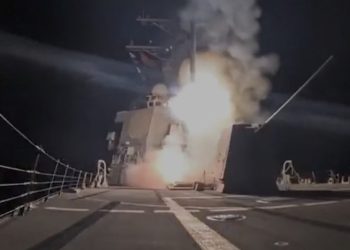Without doubt, Nigeria’s oil industry has its defining characteristics, of which transparency and international best practices are not a part. Of all the oil producing countries in the world, Nigeria is perhaps the only one where nobody can tell for sure what quantity of crude oil is produced per day, how much is realised from its sales and how much is remitted to the coffers of government. Rated the 13th largest producer of crude oil globally, the country imports over 80 per cent of refined products for local needs. But, nobody knows the actual quantity that is imported.
These oddities are compounded by the phenomenon of oil theft, where hundreds of thousands of barrels of crude oil are illegally shipped out of the country on daily basis. Despite reports that the activities of oil thieves, known locally as illegal bunkering, constitute a serious threat to her economy, Nigeria seems to be helplessly unable to stop them.
It is a crime with international repercussions, and second only to the drugs trade for the money it earns, says a report. In an interview with Bloomberg in November last year, the Minister of Finance and Coordinating Minister for the Economy, Ngozi Okonjo-Iweala, admitted that Nigeria would lose about $12 billion (N1.8trn) to oil theft and disruption of production by year end. This is not all. It is said that the trade in stolen oil helps other transnational criminal networks to spread across the Gulf of Guinea, creating global links involving oil thieves, pirates and traffickers in arms and drugs. This has serious implications.
In a report last year, a United Kingdom-based organisation, Chatham House, said Nigeria’s oil was being stolen “on an industrial scale” and shipped out to countries such as the United States, Brazil, China, Singapore, Thailand, Indonesia, Ukraine, Kosovo, Bulgaria, Romania, Greece and other West African countries. Chatham House alleged then that as much as 100,000 barrels of oil was stolen daily from onshore and swamp operations alone.
It is also believed that powerful individuals are behind the theft, which is why it has been difficult to curb it. The report traced the genesis of oil theft in the country to the military era, when compromised security agents facilitated the pulling off of the grand larceny. “Top Nigerian officials cut their teeth in the oil theft business during military rule,” the report said.
Despite the occasional hue and cry, and heavy deployment of security in the form of task forces, the business of oil theft has not abated; if anything, it has flourished. The government, in what looks like a virtual capitulation, once appealed to the international community to shun Nigeria’s stolen crude oil. This has nevertheless fallen on deaf ears.
Other measures taken include the approval by the National Economic Council for the establishment of a special court to prosecute arrested oil theft suspects and the setting aside of $1 billion for the implementation of a comprehensive programme for curbing oil theft and vandalism of oil and gas infrastructure. Announcing the government’s decision, President Goodluck Jonathan described oil theft as a form of terrorism, adding, “The thieves must be traced, apprehended and prosecuted.”
But throwing money at the problem will never yield the desired result. While it is undeniable that money is needed to replace some of the Navy’s ageing equipment in the country’s waterways, what is of urgent requirement is a demonstration of a strong political will to tackle oil theft head on. It is the ability to apply the extant laws regardless of who is involved. So far, there has been nothing to show that Jonathan is up to the task or his government ready to do so. On the contrary, what is more in evidence right now is the feeling that the government is deliberately turning a blind eye to the plundering of the country’s oil wealth. The Joint Military Task Force policing the oil installations, said when people were arrested and handed over for prosecution, such individuals later found their way back, having been set free by the authorities.
Further evidence of compromise can be found in the brazenness of the thievery. A typical bunkering process involves tapping into the network of oil pipelines criss-crossing the Niger Delta region and siphoning oil into barges, which later transfer their contents into bigger ships in the open sea. Of course, it is an open secret that oil theft is facilitated by security agents who are paid protection fees by the thieves. The arrest of two Britons and 12 Nigerians while attempting to bribe a soldier brings the point home more vividly. The Commander of the JTF in Yenagoa, the Bayelsa State capital, Maj.-Gen. Emmanuel Atewe, said, “On March 21, 2014, one of the suspects brought to the Brigade Commander $60,000, which translates to N10 million, being 50 per cent of the N20 million promised.”
But the plundering must be curbed. The big merchants in the murky business should be exposed, shamed and prosecuted. The two Britons, Piers Eastwood and Vincent Haywood, and their Nigerian accomplices, should be diligently investigated and prosecuted; and, if found culpable, jailed, to serve as a deterrent to others. And as Chatham advised, Nigeria and its oil trading partners should prioritise the gathering, analysis and sharing of intelligence on the illicit trade.













































